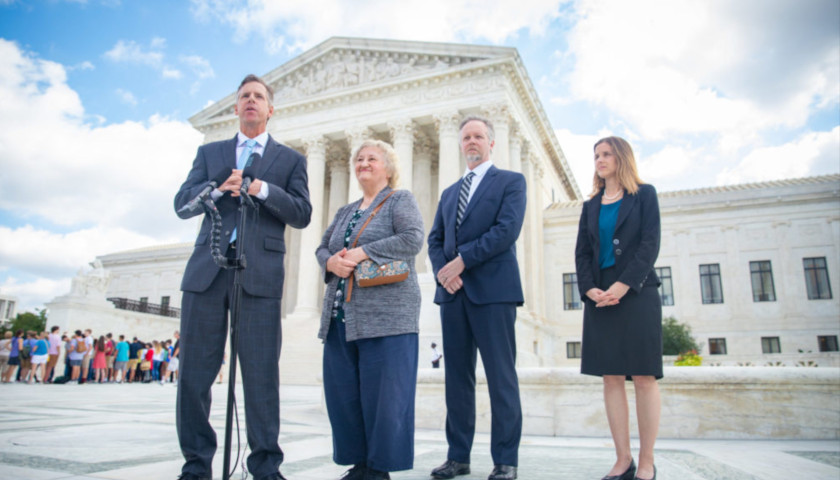The U.S. Supreme Court on Friday ruled in favor of a Pennsylvania farm owner who said the government effectively took her property without paying for it.
Rose Knick won the victory in the case of Knick v. Township of Scott.
In making its ruling, SCOTUS overturned a 1985 precedent, Williamson County Regional Planning Commission v. Hamilton Bank of Johnson City.
The Supreme Court’s opinion is here.
Knick was represented by Pacific Legal Foundation, which argued for SCOTUS to overturn the 1985 ruling that allowed federal courts to refuse to hear her challenge to a local ordinance that forced her to allow public access to her private farmland, according to a press release by PLF.
PLF said in a story that Knick’s ordeal began in 2013, when government agents forced her to allow public access to a suspected gravesite on her farmland. She sued over the unconstitutional taking. A federal court refused to hear her federal claim, citing the 1985 decision.
Hamilton Bank of Johnson City, Tennessee owned of a tract of land in Williamson County and intended to develop it into a residential subdivision, according to a case summary by Oyez. The Williamson County Regional Planning Commission denied the layout over zoning regulations.
Hamilton Bank sued the Commission alleging that the zoning laws constituted a “taking” under the Fifth Amendment. At trial, the jury awarded Hamilton Bank $350,000 as compensation for the taking. The court issued an injunction against the Commission and awarded judgment notwithstanding the verdict denying money damages because the “taking” was only temporary. The U.S. Court of Appeals for the Sixth Circuit reversed, holding that the zoning laws denied Hamilton Bank all “economically viable” use of the land and that damages were required to compensate for the temporary taking.

SCOTUS ruled that the Sixth Circuit ruling was incorrect, PLF said, and said federal property rights are entitled to the same respect in federal courts as other constitutional rights.
According to PLF, Knick said, “I’m so thankful for all the time the Supreme Court spent on this case and for the hard work PLF has done to protect the property rights of all Americans. All I’ve ever wanted was to be able to enjoy my farm in peace and quiet. Now I can actually hold the Township accountable for taking my private property in federal court!”
Chief Justice John Roberts, writing for the majority, said, “Williamson County was not just wrong. Its reasoning was exceptionally ill-founded and conflicted with much of our takings jurisprudence.”
PLF attorney Dave Breemer said, “The Court’s decision to reject barriers that unfairly deny property owners their day in court sends a message that property rights are just as sacred as all other rights,” said. “Thanks to Rose’s courage and the Supreme Court’s careful examination of this issue, property owners should now receive a prompt and fair federal hearing when the government takes their property for public use but fails to pay compensation.”
The American Farm Bureau Federation, National Cattlemen’s Beef Association and CATL Fund filed an amicus brief in support of Knick’s case, saying the Williamson County ruling allowed the government to reduce the value of farmers’ and ranchers’ land. That amicus brief is available here.
The exhaustion/ripeness rules invented in Williamson County Regional Planning Commission v. Hamilton Bank, 473 U.S. 172 (1985), have for three decades blocked farmers’ and ranchers’ pursuit of takings claims to recover compensation for government actions that reduce the value of their land or business. Williamson County’s requirement that a plaintiff exhaust state judicial remedies before an inverse condemnation claim is ripe in federal court adds enormously to the duration and expense of a takings claim—often making litigation too costly to contemplate. And state court litigation generally makes a later federal suit pointless, because state court determinations have preclusive effect in later federal actions.
– – –
Jason M. Reynolds has more than 20 years’ experience as a journalist at outlets of all sizes.
Photo by the Pacific Legal Foundation.




